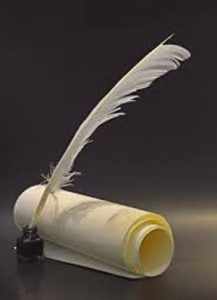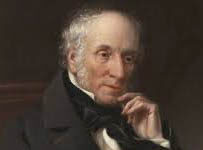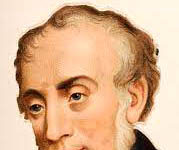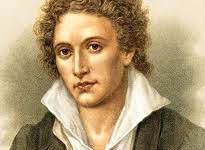The Functions of Literature
The Functions of Literature
The Functions of Literature
Literature, akin to a vast and intricate mosaic woven from the threads of human knowledge and creativity, holds within its diverse forms and genres a tapestry of functions that mirror the complexities of human existence. Just as a skilled composer harmonizes an orchestra’s diverse instruments, literature orchestrates a symphony of roles, each one contributing to the grand composition of enlightenment, emotion, and exploration. These functions, much like a constellation of stars illuminating the night sky, shape the significance and impact of literature in shaping our societies, cultures, and individual lives.
Entertainment and Escapism: At its core, literature serves as a sanctuary of entertainment and escapism, akin to a warm hearth in a cozy cottage on a wintry night. Through its vivid narratives and imaginative tales, literature offers readers an opportunity to be transported to worlds far beyond their own, evoking laughter, suspense, and awe. Just as a storyteller captures the imagination of an eager audience, authors like J.K. Rowling with her “Harry Potter” series whisk readers away to the enchanting realm of magic, where they can embark on thrilling adventures and experience the exhilaration of the unknown.
Education and Enlightenment: Literature shines as a beacon of education and enlightenment, much like an illuminated manuscript that imparts timeless wisdom to eager learners. It is a repository of knowledge about history, cultures, and societal issues, expanding readers’ horizons and offering fresh perspectives. Much like an explorer uncovering hidden treasures, literary works such as Chinua Achebe’s “Things Fall Apart” provide a window into the rich history and intricate struggles of colonial Africa, cultivating empathy and fostering a deeper understanding of the human experience.
Social Commentary and Critique: Literature acts as a reflective mirror of society, casting light on its virtues and flaws alike, much like a magnifying glass that unveils both beauty and blemishes. Through their narratives, authors offer astute commentary on social injustices, norms, and power dynamics. Much like a vigilant guardian, George Orwell’s “Animal Farm” employs allegory to lay bare the pitfalls of totalitarianism, provoking readers to contemplate the consequences of unchecked authority and the erosion of individual freedoms.
Empathy and Emotional Connection: Literature’s remarkable capacity to foster empathy and forge emotional connections is akin to a bridge uniting hearts across time and space. It invites readers to step into the shoes of characters, sharing in their joys, sorrows, and struggles. Much like a vibrant quilt woven with threads of human experiences, Harper Lee’s “To Kill a Mockingbird” weaves a narrative that urges readers to feel the injustices and compassion that mold the lives of its characters, instilling a sense of kinship and shared humanity.
Exploration of Human Nature: Delving deep into the intricate tapestry of human nature, literature serves as an exploratory laboratory that dissects motives, desires, and conflicts, much like an artist studying the delicate contours of a blooming flower. It unravels the complexities of the characters’ psyches, revealing their deepest fears, aspirations, and insecurities. William Golding’s “Lord of the Flies” functions as a microcosm of society, peeling back layers of civility to expose the primal instincts and stark contrasts that define human behavior under duress.
Preservation of Culture and Heritage: Literature stands as a guardian of culture and heritage, akin to a cherished heirloom that carries the echoes of bygone eras. It immortalizes cultural values, traditions, and narratives, ensuring their endurance across generations. Similar to a time capsule filled with cherished relics, the epic poem “The Ramayana” preserves ancient Indian mythology and ethical teachings, underscoring literature’s role as a timeless vessel for safeguarding cultural legacies.
Inspiration and Empowerment: Literature emerges as a wellspring of inspiration and empowerment, much like a life-giving river that nourishes the spirit. It introduces characters who overcome adversity, encouraging readers to face their own challenges with courage and determination. Similar to a guiding light illuminating the path ahead, Malala Yousafzai’s “I Am Malala” chronicles her transformative journey from oppression to becoming a global advocate for education, inspiring countless individuals to rise against injustice and uphold their beliefs.
Catharsis and Healing: Functioning as a vessel for catharsis and emotional healing, literature provides a safe haven for readers to navigate their emotions and find solace, akin to a gentle touch that soothes the soul. It offers an outlet for readers to confront their own feelings through the experiences of fictional characters, enabling them to process their emotions and find comfort in shared narratives. Khaled Hosseini’s “The Kite Runner” delves into themes of guilt, redemption, and forgiveness, inviting readers to engage in a cathartic journey of emotional release and self-reflection.
Literature’s multifaceted functions, akin to a harmonious symphony conducted by a maestro, contribute to the intricate fabric of human experience. It entertains, educates, critiques, connects, and heals, casting a radiant light on the myriad facets of our lives and the world around us. Like a multi-hued gem that refracts light in myriad directions, literature’s roles enhance our understanding of ourselves, our societies, and the collective human narrative. As readers, we embark on a journey through its pages, uncovering layers of meaning, emotion, and insight that enrich our lives and weave us into the grand tapestry of human history and imagination. 0 0 0. The Functions of Literature
The Functions of Literature
N.B. The article ‘The Functions of Literature’ originally belongs to the book ‘The Origin Evolution & Functions of Literature‘ by Menonim Menonimus. The Functions of Literature
Books of Literary Criticism by M. Menonimus:
- World Short Story Criticism
- World Poetry Criticism
- World Drama Criticism
- World Novel Criticism
- World Essay Criticism
- Indian English Poetry Criticism
- Indian English Poets and Poetry Chief Features
- Emily Dickinson’s Poetry-A Thematic Study
- Walt Whitman’s Poetry-A Thematic Study
- Critical Essays on English Poetry
- Tawfiq al-Hakim’s Novel: Return of the Spirit-An Analytical Study
- Tawfiq al-Hakim’s Novel: ‘Yawmiyyat Naib Fil Arayaf’-An Analytical Study
- Analytical Studies of Some Arabic Short Stories
- A Brief History of Arabic Literature: Pre-Islamic Period (500 AD-622 AD)
- A Brief History of Arabic Literature: Early Islamic Period (622 AD-661 AD)
- Reviews on William Shakespeare’s Works
- Reviews of Charles Dickens’ Works
- Reviews of John Milton’s Literary Works
- Reviews of Some Iconic Travelogues
- Shakespeare’s Sonnets-Critical Studies
- Analytical Studies of Selected Poems of Sarojini Naidu
- Analytical Studies of Selected Poems of Rabindranath Tagore
- Analytical Studies of Selected Indian English Poems
- Reviews of Selected Motivational Books
- Origin Evolution & Functions of Literature …
Additional Searches::
- The Functions of Literature
- Evolutionary Literary Study
- Functions of Literature
- Principles of Literature
- Literary Theory
- What are the Functions of Literature
- Top 10 Functions of Literature











